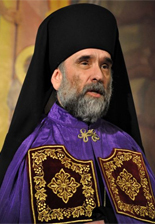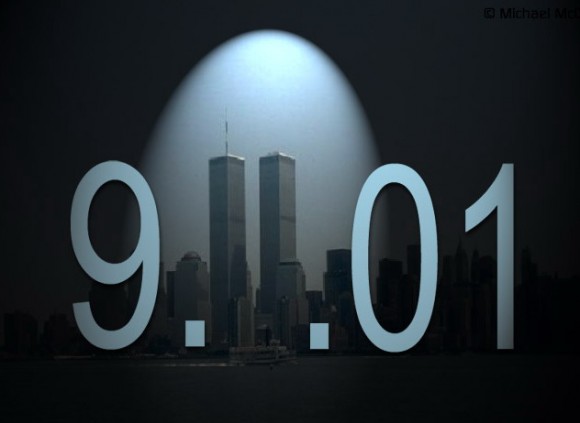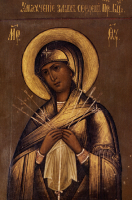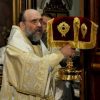 It is hard to believe that today is the 10th Anniversary of the tragic events that have come to be known simply by two numbers – 9/11. This date commemorates one of the darkest days in American history, alongside that of Pearl Harbor. It recalls the immeasurable loss of thousands of innocent lives at the hands of terrorist attacks and the many fallen heroes who tried to save them. It marks the first time in more than a century that anyone living in the lower 48 states could recall an invasion on American soil by a foreign power. It was indeed a day that will live in infamy.
It is hard to believe that today is the 10th Anniversary of the tragic events that have come to be known simply by two numbers – 9/11. This date commemorates one of the darkest days in American history, alongside that of Pearl Harbor. It recalls the immeasurable loss of thousands of innocent lives at the hands of terrorist attacks and the many fallen heroes who tried to save them. It marks the first time in more than a century that anyone living in the lower 48 states could recall an invasion on American soil by a foreign power. It was indeed a day that will live in infamy.
The immense suffering caused by this tragedy has raised questions within groaning minds and broken hearts, seeking to make some sense of the horrific event. These questions echo the cries of the Psalmist and of our crucified Savior Who said, “My God, My God, why hast Thou forsaken me?” [Psalm 21: 1, LXX; Matthew 27:46]. No doubt this verse sums up what so many Americans felt, and still feel, in the face of such incredible barbarism: where was God when this happened?
But this passage of Scripture is not just a declaration of despair and abandonment; it is also an utterance tempered by faith and hope. For the Psalm ends with an affirmation of faith in the compassionate presence of God: “For the Lord did not despise or abhor the affliction of the afflicted; He did not hide His face from me, but heard me when I cried to Him” [Psalm 21:24, LXX]. And, in the strength and peace that comes from above, the Psalmist goes on proclaiming in hope, “All the ends of the earth shall remember and turn to the Lord; and all the families of the nations shall worship before Him” [Psalm 21:27, LXX].
Centuries later, the cry of Christ upon the Cross was, to be sure, a manifestation of the terrible suffering He endured as He bore the indescribable burden of our sin. But His plea also makes plain the fact that through the Son of God’s act of sacrificial suffering, the limitless power of God’s love was revealed – a power of love that was stronger than death, proven by the Lord’s glorious Resurrection. The answer to our question is simply, God was in the same place on 9/11 that He was on Good Friday – standing over the shattered gates of Hell; trampling down death by death. For in His power, in His love, death is not the hopeless end of the story – there is the victory and the joy of the Resurrection.

Thus it is that our Christian response to the devastating tragedy of 9/11 must be grounded in our faith in the Crucified and Risen Lord. Our answer to this adversity must be revealed in words of comfort and deeds of service. Our yearnings to understand this horrible moment in history and to cope meaningfully with it must find rest in the saving presence, the unfailing promises, and the loving actions of our merciful God.
This anniversary calls upon us to never forget the stern warning of Scripture, which came to pass for so many on September 11, 2001, that death comes “as a thief in the night” [I Thessalonians 5: 2]. This sober remembrance should remind us to “take heed, watch and pray; for you do not know when the time is” [Mark 13:33]. It should encourage us to live our lives in such a way that when we close our eyes to this world for the last time, we will indeed open them to find ourselves in the loving embrace of the loving Lord who died for our salvation.
This occasion also calls upon us to remember those who lost their lives ten years ago – not just with fond thoughts but with the power of prayer. Scripture tells us: “For if (we) were not looking for the resurrection of those fallen, it would have been utterly foolish to pray for the departed. But since (we are) looking to the reward of splendor laid up for those who repose in godliness, it is a holy and godly purpose to pray for them” [2 Maccabees 12:44-45]. So many within the communities served by the Diocese of New York and New Jersey lost loved ones that day. The Scriptures call upon us to reach, in love, across the boundary of death, and pray that God will pour out His mercies upon those who were taken from us so suddenly.
Finally, this anniversary calls us to continue to care for the needs of the family members who lost their loved ones. The parents, the children, the spouses of the departed remain the living victims of this tragedy. Whatever they require – from spiritual counseling to material support – we must help provide for their needs, salve the wounds of their hearts, and offer them faith, hope, and love in our Lord God and Savior Jesus Christ amidst their doubts, their fears, and their despair. He offers the ultimate promise: “I am the Resurrection and the Life; he who believes in Me, though he may die, yet shall he live” [John 11:25]. Our task is to make that promise present in the lives of those who lost loved ones on that dark day.
As we pause to mark this anniversary with solemnity, let us show the world by our faith in Him – our faith, put into action – that “neither death nor life … nor things present, nor things to come … nor anything else in all creation will be able to separate us from the love of God in Christ Jesus our Lord” [Romans 8:38-39].
Source: Orthodox Church in America















